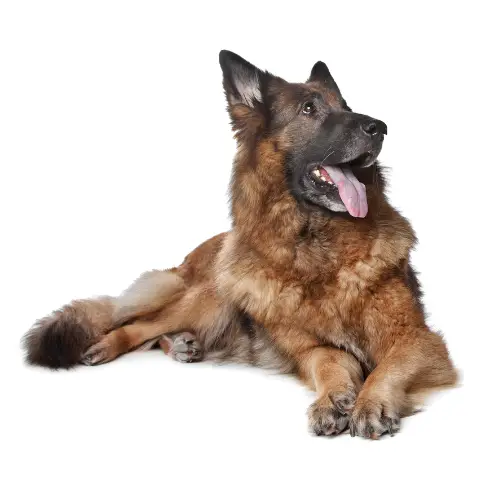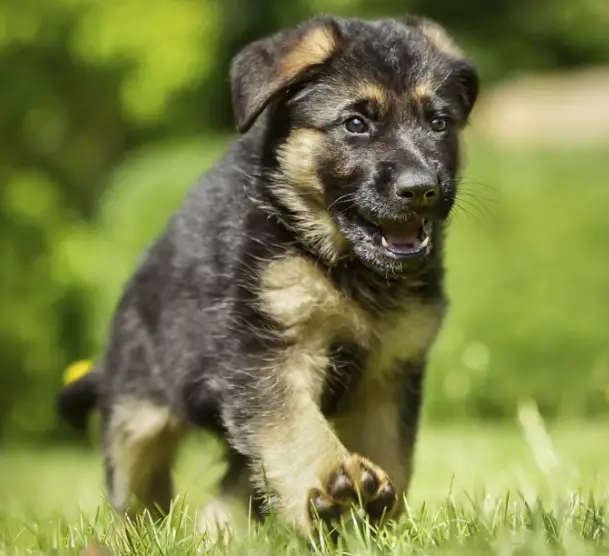When it comes to popular dog breeds, the Doberman and German Shepherd often come to mind. Both breeds are known for their loyalty, intelligence, and protective instincts, but they have distinct differences that set them apart. From their physical characteristics to their temperament and training needs, understanding the differences between these two breeds is essential for anyone considering adding a new furry member to their family. In this article, we’ll explore the differences between a Doberman and a German Shepherd, highlighting their unique traits and helping you make an informed decision about which breed may be the best fit for you.
Physical Appearance
Doberman and German Shepherd are two popular dog breeds that are known for their intelligence, loyalty, and courage. Although they share some similarities, there are several differences in their physical appearance.
- Size: The German Shepherd is a larger breed, typically weighing between 50 to 90 pounds, and standing 22 to 26 inches tall at the shoulder. In contrast, the Doberman is a medium-sized breed, weighing between 60 to 100 pounds and standing 24 to 28 inches tall at the shoulder.
- Coat: The German Shepherd has a thick, double coat that is usually black and tan or sable in color. The coat is typically longer and shaggier around the neck and tail. In contrast, the Doberman has a short, sleek coat that is usually black, blue, red, or fawn in color.
- Ears: One of the most distinctive features of the Doberman is its ears, which are usually cropped and erect. German Shepherds, on the other hand, have triangular-shaped ears that stand upright naturally.
- Head shape: Dobermans have a more angular and streamlined head shape, with a long, narrow snout and a sloping forehead. German Shepherds have a more rounded head shape, with a broader snout and a more pronounced forehead.
- Tail: Dobermans have a docked tail, meaning that their tails are surgically removed shortly after birth. German Shepherds have a long, bushy tail that curves slightly downwards.
Temperament
Dobermans and German Shepherds have different temperaments, although both breeds are known for their loyalty and intelligence.
Dobermans are often described as confident, fearless, and assertive. They are known for their alertness and protective instincts, which make them great watchdogs. However, Dobermans also have a sensitive side and are known to form strong bonds with their families.
German Shepherds, on the other hand, are also confident and courageous, but they are generally more reserved than Dobermans. They are often used as police or military dogs because of their ability to follow commands and their loyalty to their handlers. German Shepherds are also known for their intelligence and trainability, making them great working dogs.
Activity Level
Both Dobermans and German Shepherds are high-energy breeds and require a considerable amount of physical activity and mental stimulation to remain happy and healthy. However, there are some differences in their activity level.
Dobermans are known for being highly active and energetic dogs. They require a lot of exercise to burn off their energy and stay in good physical shape. They enjoy running, playing, and engaging in physical activities with their owners. Daily exercise and playtime are essential for Dobermans to stay healthy and happy.
On the other hand, German Shepherds are also active dogs, but they tend to have a more moderate energy level compared to Dobermans. They still require daily exercise and mental stimulation, but they may not need as much activity as Dobermans. German Shepherds enjoy playing and exercising with their owners, but they are also content with long walks and quiet time with their families.
Health Concerns
While both Dobermans and German Shepherds are generally considered healthy breeds, there are some differences in health concerns between the two:
Doberman Health Concerns:
- Dilated cardiomyopathy: a heart disease that affects the heart’s ability to pump blood.
- Von Willebrand’s Disease: a blood clotting disorder that can cause excessive bleeding.
- Hip dysplasia: a genetic condition where the hip joint doesn’t develop properly, leading to arthritis and pain.
- Wobbler’s Syndrome: a spinal cord disease that causes weakness and instability.
German Shepherd Health Concerns:
- Hip dysplasia: as with Dobermans, hip dysplasia is a concern in German Shepherds.
- Bloat: a condition where the stomach twists and fills with gas, which can be life-threatening if not treated immediately.
- Degenerative myelopathy: a progressive spinal cord disease that causes weakness and eventually paralysis.
- Elbow dysplasia: similar to hip dysplasia, this is a condition where the elbow joint doesn’t develop properly.
It’s important to note that not all dogs within these breeds will develop these health concerns, and responsible breeding practices can help to reduce the likelihood of passing on these genetic conditions. Regular vet check-ups, a healthy diet, and regular exercise can also help to keep your dog healthy.
Training
Dobermans and German Shepherds are both highly intelligent and trainable dog breeds, but there are some differences in their training needs.
Doberman Pinschers are known for their high energy, intelligence, and loyalty. They are eager to please their owners and are quick learners, but they can also be independent and strong-willed. Therefore, it is important to establish yourself as the pack leader and to provide firm and consistent training. Positive reinforcement is key with this breed, as they respond well to rewards for good behavior. Early socialization is also important to help your Doberman develop good behavior around other dogs and people.
German Shepherds are also highly intelligent and trainable, but they are more focused on their handler and their job. They are often used as police and military dogs, as well as for search and rescue missions. German Shepherds need a lot of physical and mental stimulation, as well as consistent training and socialization. They respond well to positive reinforcement training, but they also need firm and consistent boundaries. Early socialization is important to help your German Shepherd develop good behavior around other dogs and people.
Family Compatibility
Both Dobermans and German Shepherds can make great family pets, but there are some differences between the two breeds to consider.
Dobermans are known for their loyalty and protective nature, making them great watchdogs. They are also highly intelligent and trainable, but require plenty of exercise and mental stimulation to keep them happy and healthy. Dobermans can be wary of strangers and may need early socialization to help them become comfortable around new people and situations. While they can be great with children when socialized properly, they may be better suited for families with older children who understand how to interact with dogs.
German Shepherds are also highly intelligent and trainable, and they are known for their loyalty and protective nature. They are often used as police and military dogs, and can make excellent family pets when properly trained and socialized. German Shepherds are typically good with children and can be very gentle and patient, but they do require plenty of exercise and mental stimulation to keep them healthy and happy.
When it comes to family compatibility, both Dobermans and German Shepherds can be great choices, but it is important to consider your lifestyle, living situation, and the needs of the individual dog. Both breeds require a lot of attention and training, so they may not be the best choice for families who are very busy or have limited space for a dog to exercise and play. It is also important to choose a reputable breeder or rescue organization and to spend time getting to know the dog before making a decision to ensure a good match for your family.
Conclusion
In conclusion, while both the Doberman and the German Shepherd are popular dog breeds, they have distinct differences that make them unique. The Doberman is known for its loyalty and protective nature, making it a great choice for a guard dog. On the other hand, the German Shepherd is known for its intelligence and versatility, making it a great choice for a variety of roles such as a police dog or a service animal. Additionally, the two breeds differ in their physical characteristics, with the Doberman having a leaner build and a shorter coat, while the German Shepherd has a more muscular build and a longer coat. Ultimately, the choice between a Doberman and a German Shepherd will depend on an individual’s needs and preferences. It is important to carefully consider both breeds before making a decision to ensure that the chosen dog will be a good fit for the owner’s lifestyle and needs.







